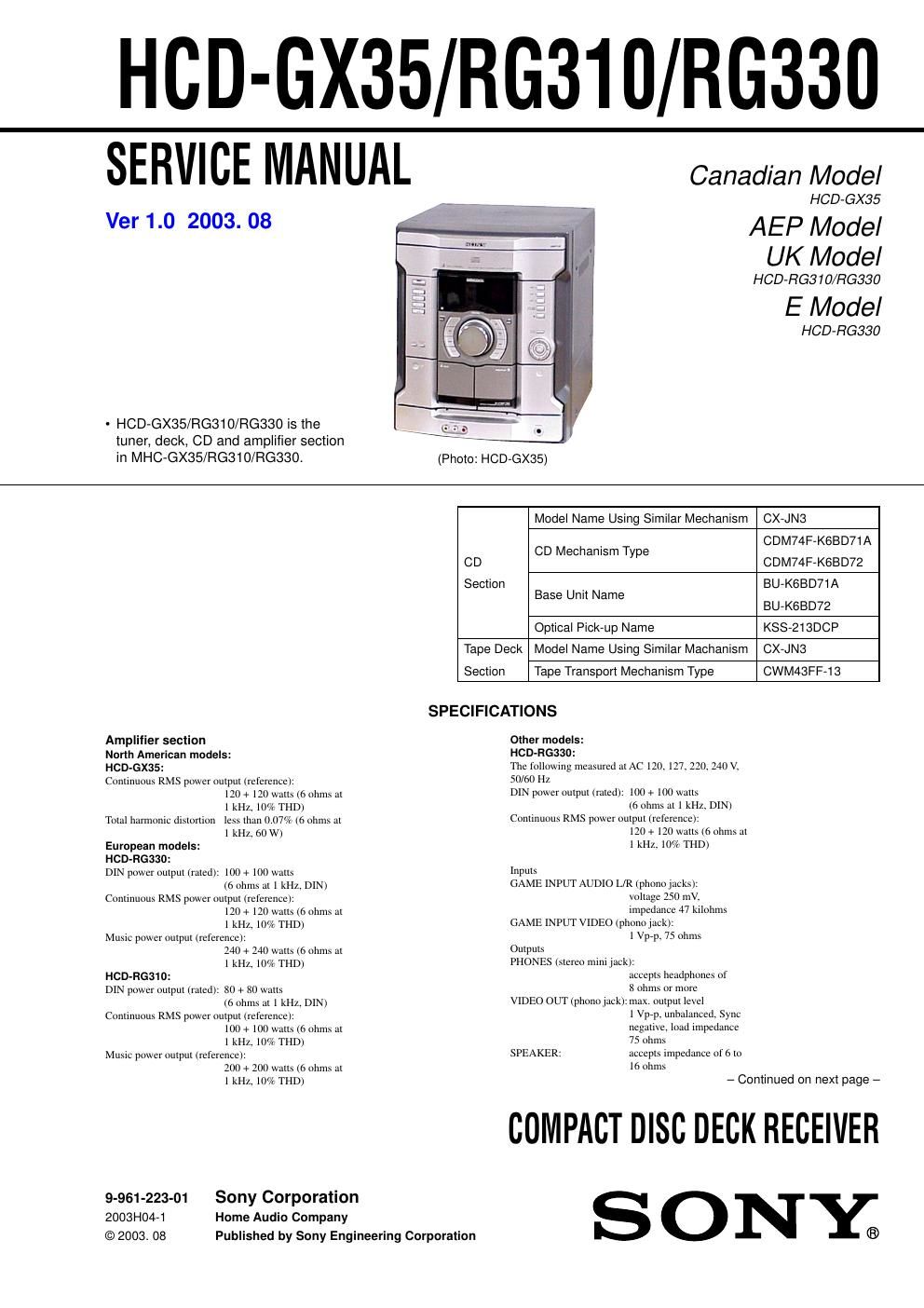Sony hcd rg 310 service manual
This is the 74 pages manual for sony hcd rg 310 service manual.
Read or download the pdf for free. If you want to contribute, please upload pdfs to audioservicemanuals.wetransfer.com.
Page: 1 / 74
